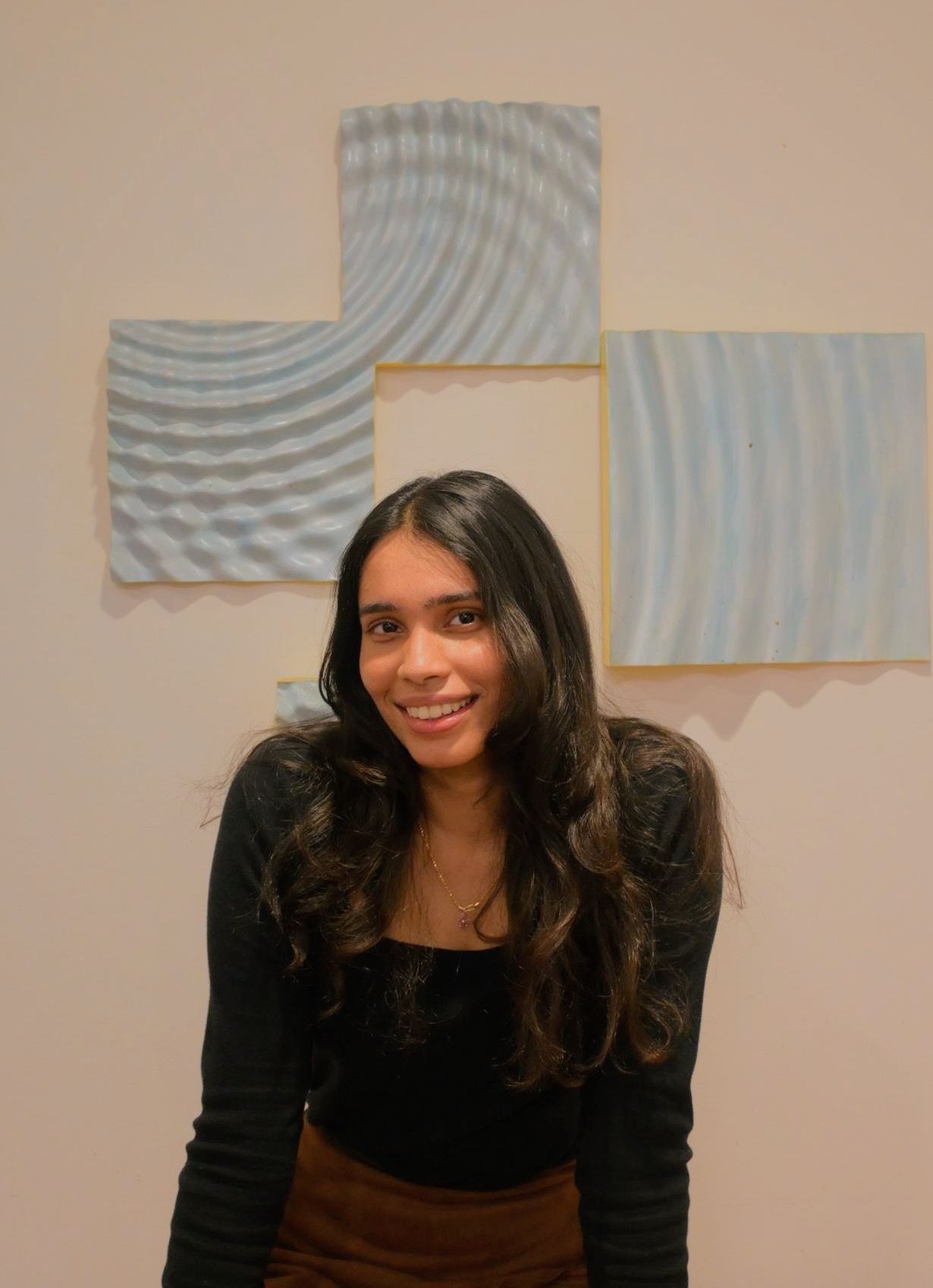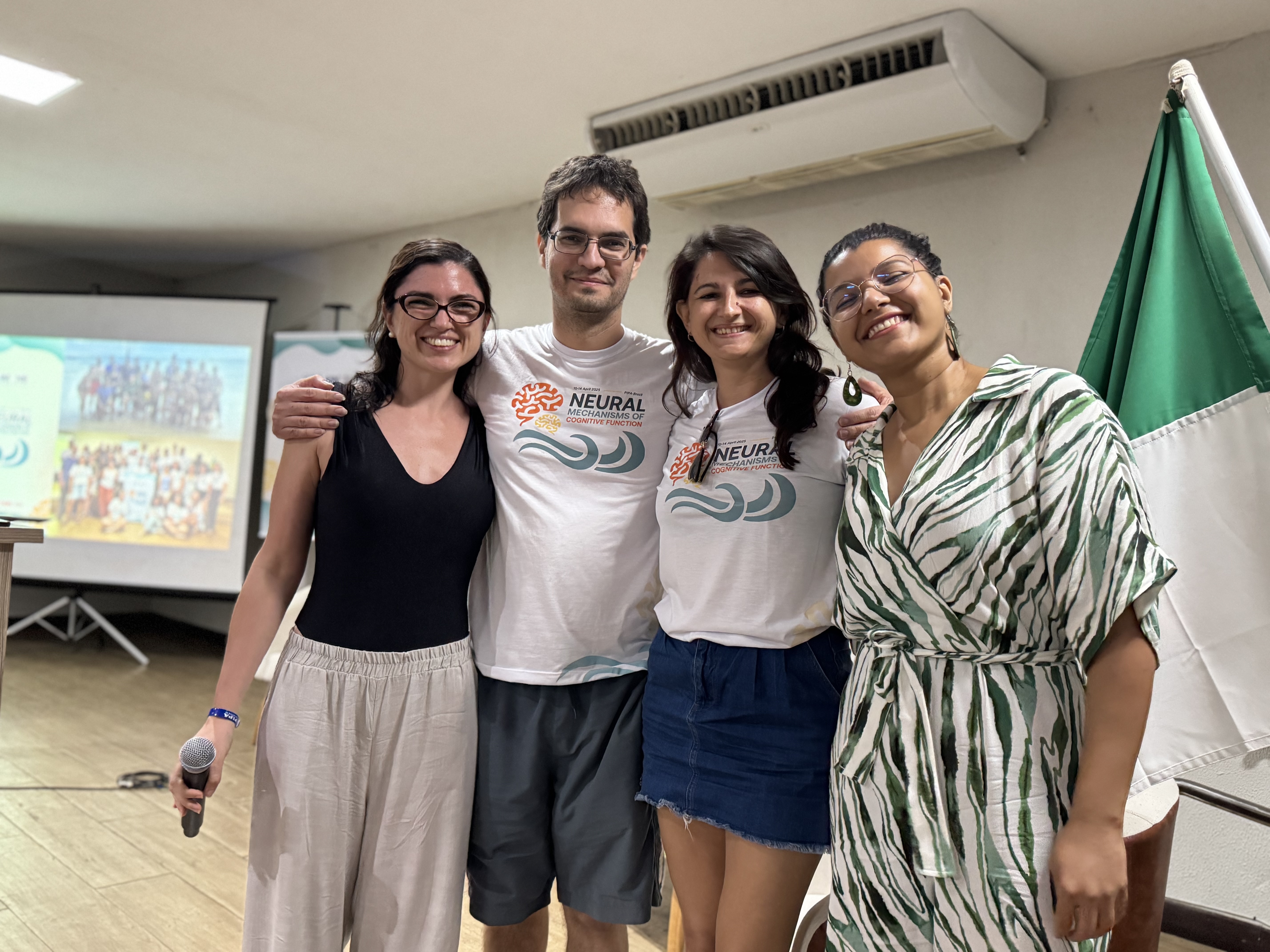

Growing up in the serene town of Mayiladuthurai, Tamil Nadu, Supraja was always fascinated by the mysteries of nature. This curiosity led her to pursue an undergrad and master's degree in zoology at Lady Doak College, Madurai. Her academic journey took an exciting turn when she had the opportunity to contribute to research studying dendrite regeneration in C.elegans at the National Brain Research Centre. This experience ignited her passion for understanding animal behaviour and the intricate neural circuits driving it. Now, as a PhD student at NCBS, she is excited to delve deeper into the neural mechanisms underlying spatial memory formation in the hippocampus and motor circuit plasticity. She would like to understand how these circuits are shaped by experience. When she is not playing with our rat buddies, you'll find her enjoying birdwatching, connecting with nature, or engrossed in a captivating novel.
suprajab[at]ncbs[dot]res[dot]in

Anirudh grew up in Shimla, Himachal Pradesh, and has a Bachelor’s in Life Science from St. Xavier’s College, Mumbai. Following his Bachelor’s, he worked as a research assistant at the Center for Neuroscience, IISc, Bengaluru, where he probed the brain’s ability to learn hidden patterns in its environment and exploit them to make efficient decisions while exploring and foraging. As a pure biology graduate, this experience led him to truly appreciate the highly interdisciplinary nature of systems neuroscience, and learn methods in data analysis and reinforcement learning. He is now an integrated-PhD student at NCBS and continues to enjoy his journey in systems neuroscience. He also enjoys writing prose and poetry (when not suffering from writer’s block, which is more frequent than he would like to admit) and will never say no to a fun trekking expedition!
anirudhs[at]ncbs[dot]res[dot]in

Vardhamann grew up in Namma Bengaluru and completed his integrated master's at UM-DAE CEBS, Mumbai. His master's thesis focused on exploring patterns in cellular migration across viscotactic gradients. During his time there, Vardhamann worked on a variety of projects, including developing a benchtop colorimeter to analyze active components in turmeric and optimizing small CNC machines for PCB production. His fascination with neuroscience arises from the complex computations that emerge from seemingly stochastic phenomena, and he aims to integrate his experiences in electronics and his passion for computation to develop new tools and methods for understanding neural systems. Outside of research, Vardhamann is an avid enthusiast of 3D printing and electronics and a strong proponent of Freedom-Loving and Open Source Software (FLOSS). He uses EMACS to streamline his workflows. In his leisure time, he enjoys cycling, reading, and spending peaceful evenings immersed in the sounds of nature.
vardhamann[at]ncbs[dot]res[dot]in

Vaishnavi grew up in Kolhapur, a culturally rich city in Maharashtra, where her early interest in biology took root. This passion led her to pursue a bachelor’s degree in Biotechnology, followed by a Master’s degree in biotechnology from Savitribai Phule Pune University. During her Master’s dissertation in Molecular Neuroscience, she gained hands-on experience in animal handling and molecular biology techniques. Her research in her master's focused on the brain’s reward system, exploring how metabolic states influence neural circuits through epigenetic mechanisms. This work solidified her fascination with the interplay between neuroscience, behavior, and biology, particularly in understanding how environmental and physiological factors shape behavior—a field that drives her academic and professional pursuits. Outside of her research, Vaishnavi enjoys listening to music, sketching, and spending time outdoors, activities that nurture her creativity and provide balance.
vaishnavik[at]ncbs[dot]res[dot]in

Gauri grew up between Navi Mumbai and Indore, where early exposure to science projects nurtured a strong curiosity for the field. She earned her Bachelor's degree in Pharmacy from Mumbai University, after which her desire to understand the biological principles underlying health and disease deepened. Inspired by Memoirs of an Addicted Brain, she pursued a Master’s in Neuroscience at the National Brain Research Centre (NBRC), Manesar. At NBRC, her thesis explored gait differences between wild-type and Autism Spectrum Disorder model rats. While challenging, this project sparked enduring questions about how specific neural circuits regulate movement and coordination, and what neural computations give rise to such emergent behaviors. These interests led her to join Abhilasha’s lab, where she continues to investigate the neural basis of movement. Outside the lab, Gauri is an avid trekker and enthusiastic cyclist. She also enjoys reading and crocheting.
gauris[at]ncbs[dot]res[dot]in

Ankita grew up in Phulbani, Odisha, surrounded by lush forests and rolling hills. She pursued a BS-MS dual degree in Biological Sciences at IISER Bhopal, where her thesis investigated how oxidative stress influences aversive associative learning in C. elegans. This project sparked her love for studying behavior. Her curiosity in neuroscience stems from the mystery of how simple neuronal signals scale up to shape memory, behavior, and identity. She is particularly excited about exploring systems neuroscience at the interface of cognition and behavior, and enjoys studying animals for the remarkable strategies they use to navigate the world. Beyond the lab, Ankita can often be found with a coffee mug in hand, playing table tennis, or sketching portraits.
ankitab[at]ncbs[dot]res[dot]in

Vaaruni grew up in the United Kingdom and India, often shuttling between the two countries. She completed her Bachelor’s in Biology at Azim Premji University and her Master’s in Biomedical Engineering at Carnegie Mellon University. Her prior research has explored computational modelling, neural decoding, signal processing, and medical device design to answer questions in biomechanics and neuroscience. Outside of research, she enjoys going on long walks, reading, and classical dance — Bharatanatyam and ballet.
vsuresh[at]ncbs[dot]res[dot]in

Debolina grew up in Haldia, a small industrial town in West Bengal, and had an early inclination toward life sciences. She earned dual BS-MS degrees in Biotechnology and in Neuroscience from Amity University, Noida, Uttar Pradesh. During a research internship at the Institute of Neurosciences, Kolkata, she worked closely with individuals with autism to map cognitive abilities and develop a nuanced understanding of neuropsychiatric disorders and their implications for the human psyche. Debolina was inspired by Professor Robert Sapolsky’s lectures on evolutionary biology during the COVID-19 lockdown, and she shifted her focus to explore how complex social behaviors emerge in nature. Outside the laboratory, she can often be found attending film screenings, visiting art exhibitions and museums, or sketching landscapes in her sketchbook.
debolinalahiri99[at]gmail[dot]com

Attar Ushafee grew up in Rajouri, Jammu, and Kashmir and has a bachelor’s degree in science from the Himalayan Degree College Rajouri. He recently finished his master’s in Botany from RIMT University, Punjab. His prior research experiences include various scientific disciplines, such as MSME technology development, cancer biology, and genetic engineering. His prior research experience includes Python-based data analysis at Chinar Quantum AI, where he worked on cancer patient data from the Peer Panchal region. Attar is passionate about cancer biology, brain metastasis, and neural behavior changes.
Attar was in the lab between December 2024 & February 2025, exploring various machine-learning algorithms for pose estimation. Attar has found an exciting position as a Project Intern at CyGenica Private Limited. Here, he will focus on protein purification and molecular biology. We wish him all the very best!
attarushafee[at]gmail[dot]com















Lorem ipsum dolor sit amet, consectetur adipiscing elit, sed do eiusmod tempor incididunt ut labore et dolore magna aliqua. Ut enim ad minim veniam, quis nostrud exercitation ullamco laboris nisi ut aliquip ex ea commodo consequat. Duis aute irure dolor in reprehenderit in voluptate velit esse cillum dolore eu fugiat nulla pariatur.
Block quote
Ordered list
Unordered list
Bold text
Emphasis
Superscript
Subscript